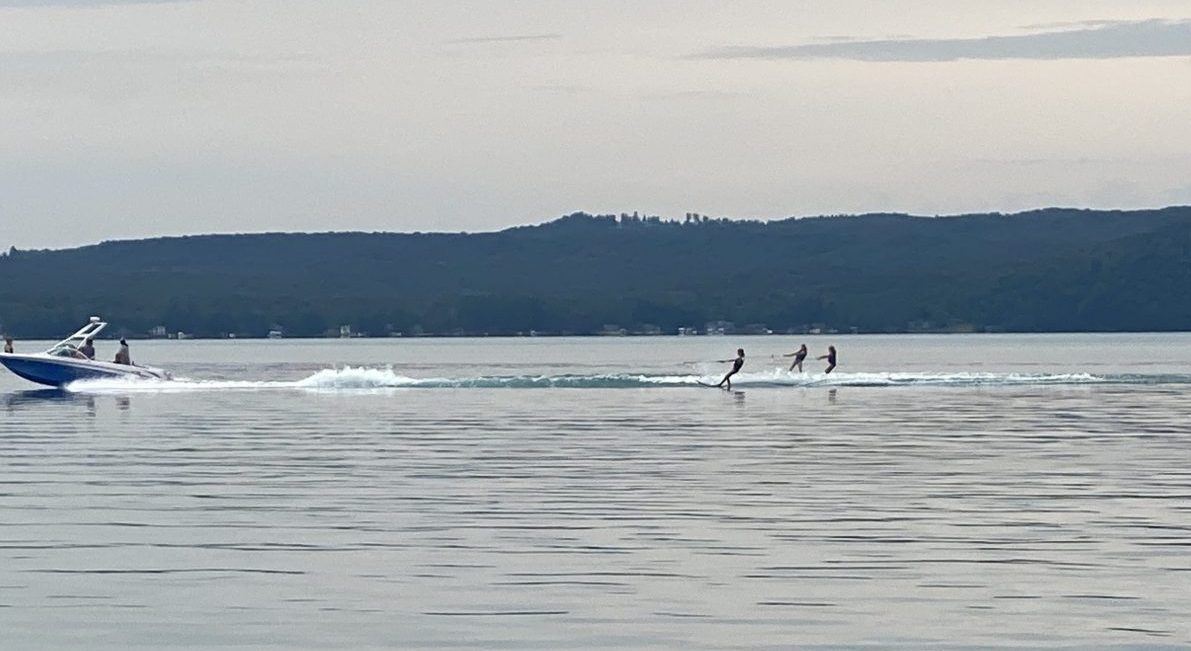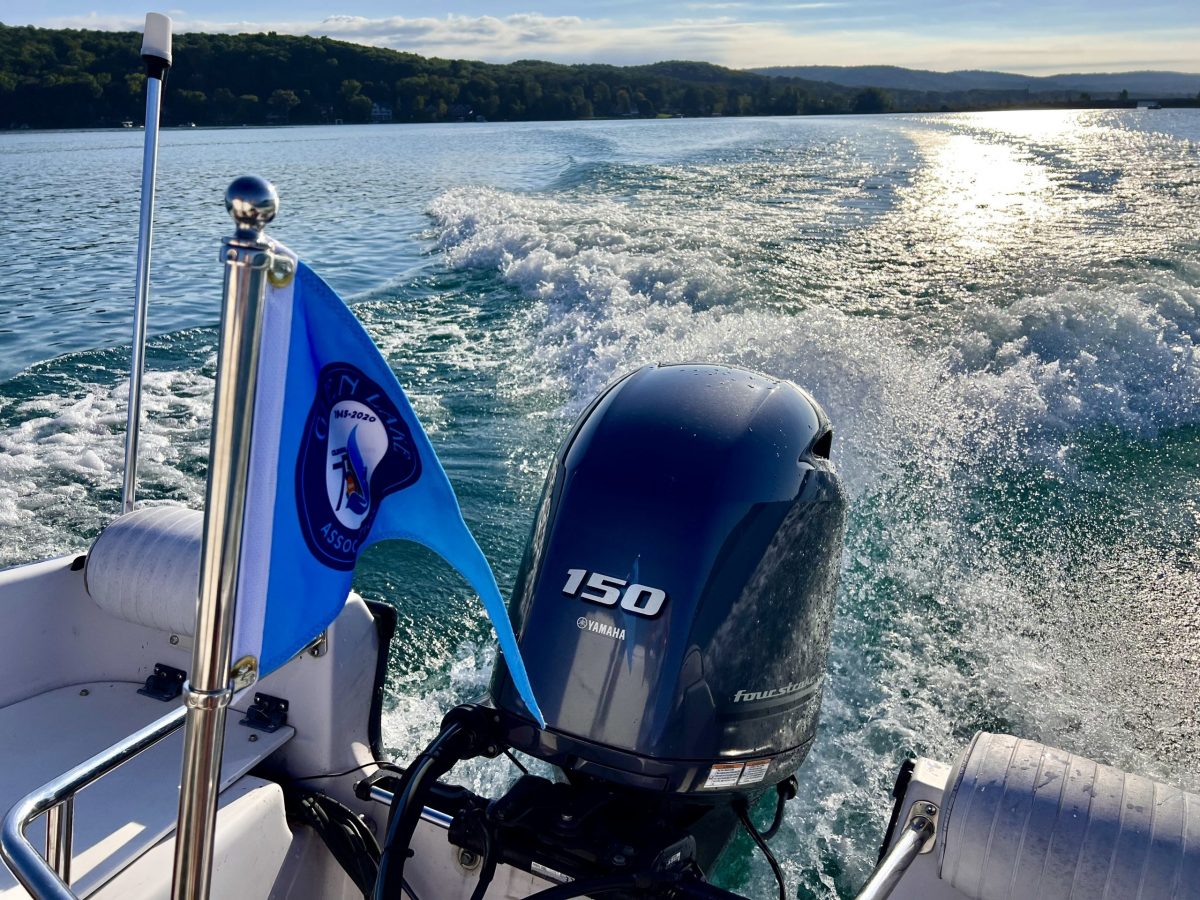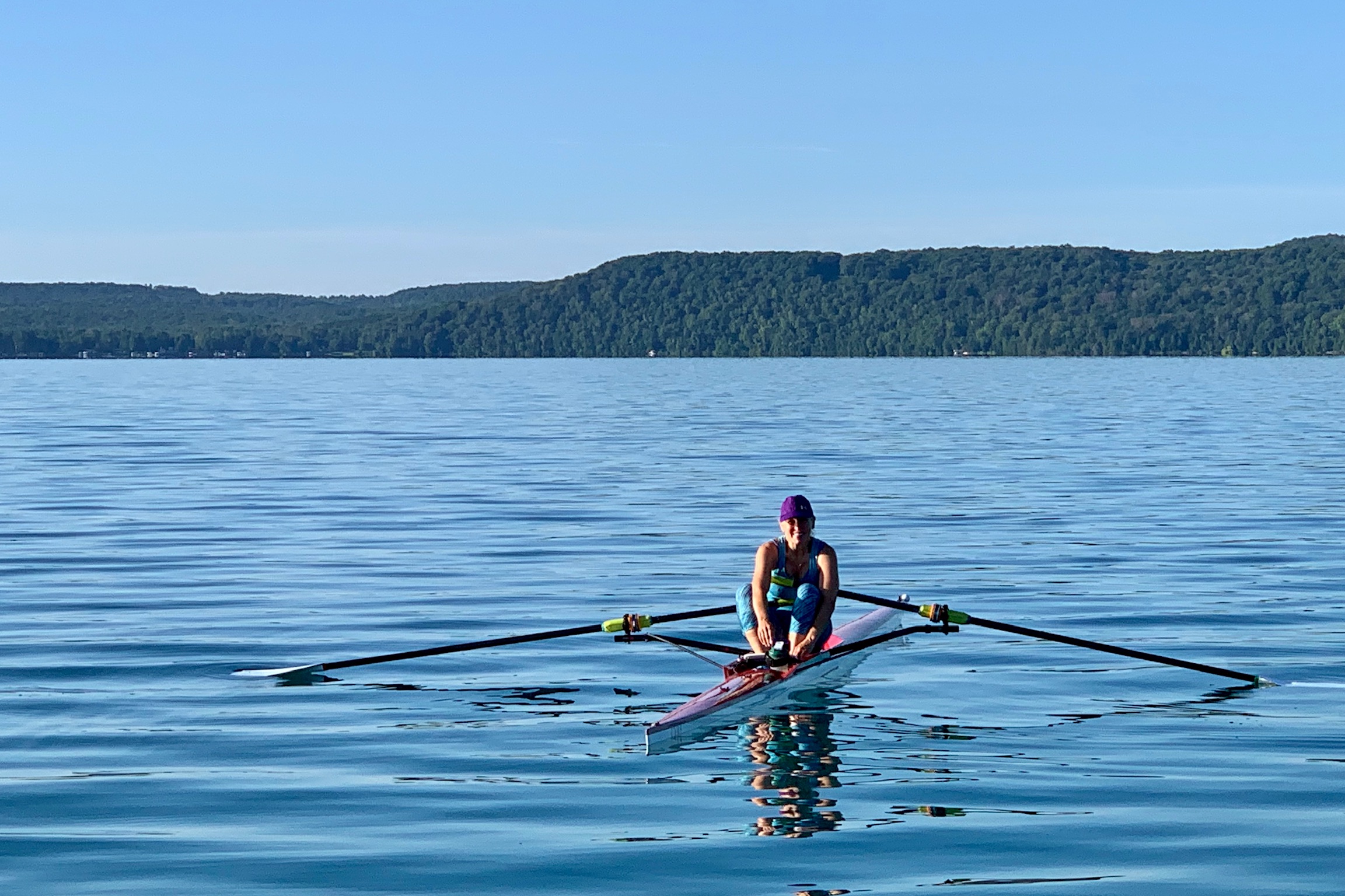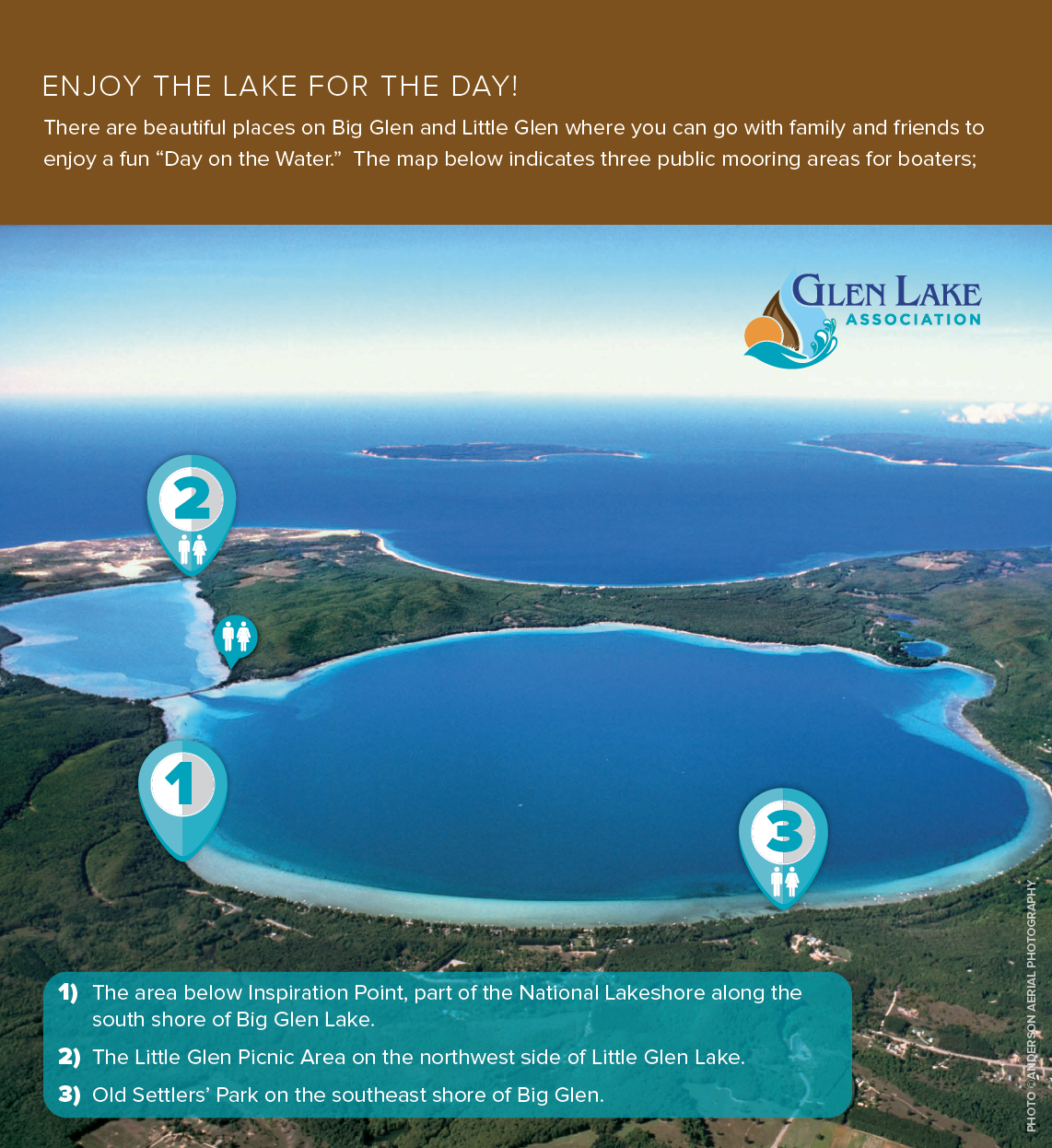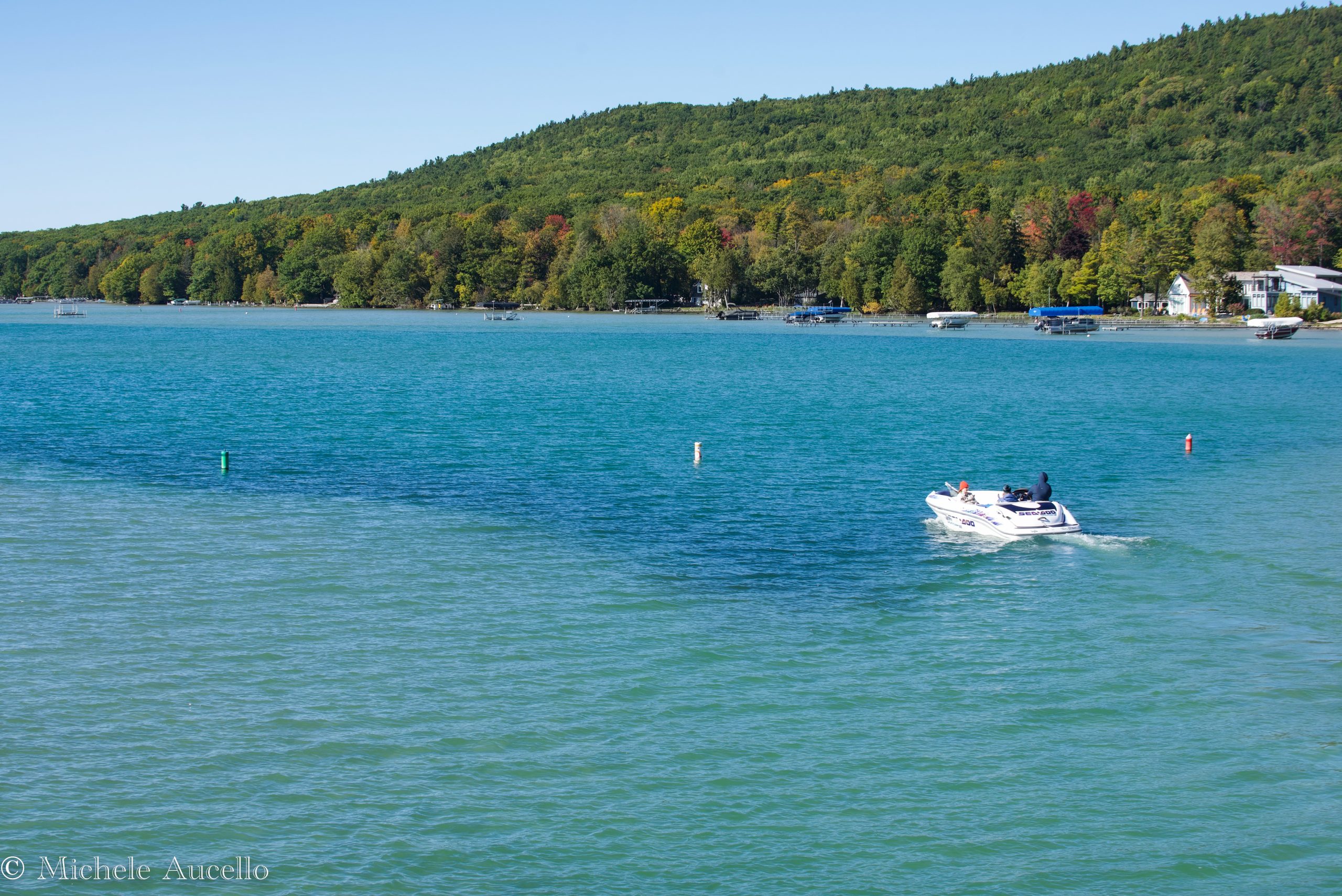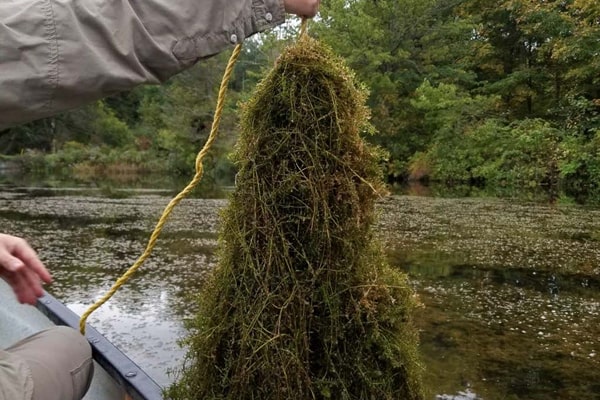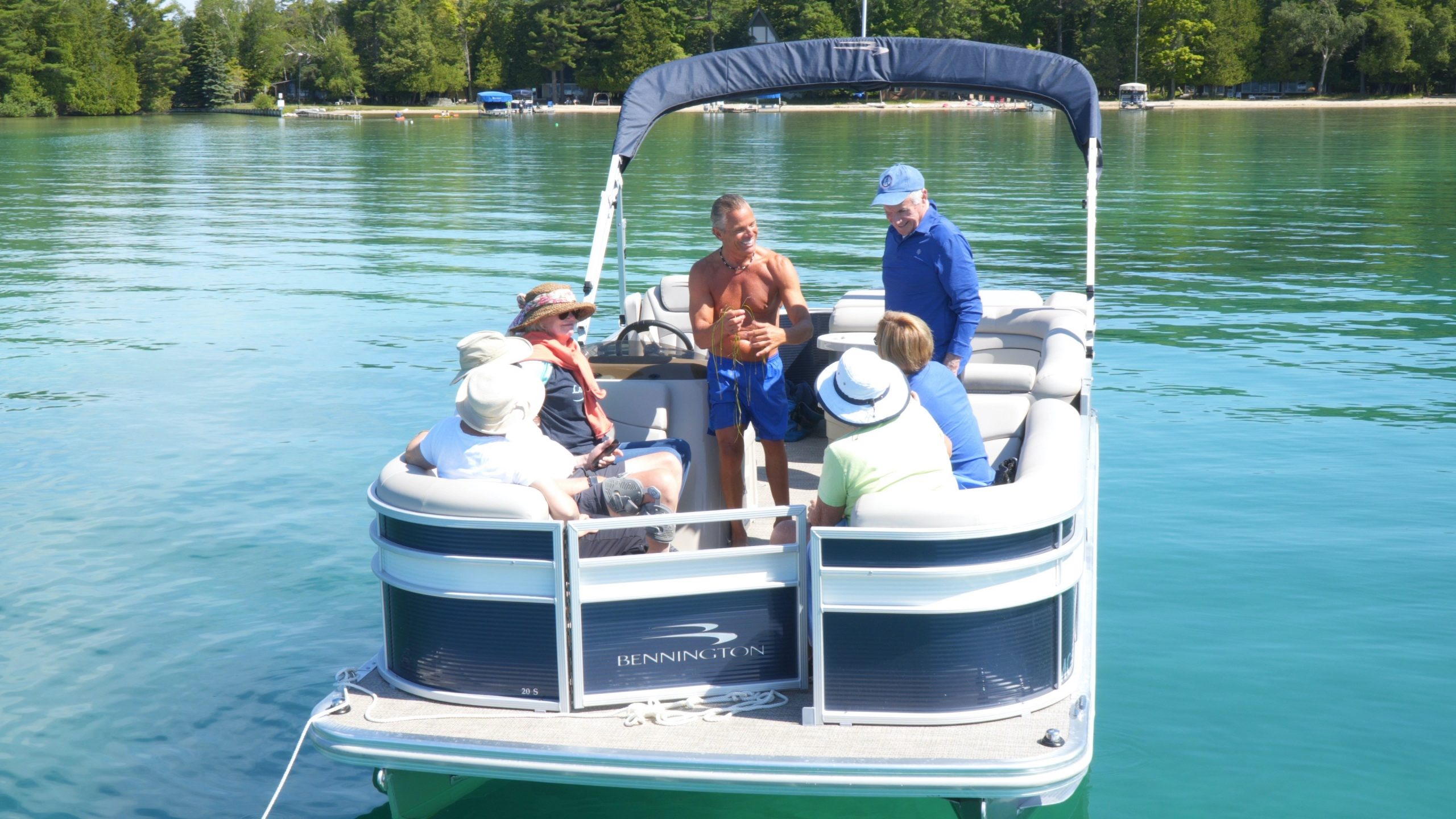ENJOY BOATING WHILE PROTECTING the watershed
Your boating adventure awaits on the inland waters of the Glen Lake/Crystal River Watershed. The Glen Lake Association promotes a balanced approach to watercraft operation and management. This approach encourages everyone to enjoy boating while protecting the watershed and being safe. Regardless of your watercraft of choice – motorized boat, row boat, jet ski, sailboat, canoe, kayak, or paddle board – we know you’ll appreciate the clean and healthy lakes and river!
MICHIGAN BOATING LAWS
The Handbook of Michigan Boating Laws and Responsibilities offers a comprehensive overview of watercraft rules and regulations including speed limits, hours of operation, rights of way, age restrictions, and other safety precautions.
Please be aware of these important safety regulations:
- All Michigan inland lakes have a general speed limit of 55 MPH
- Boats must stay 100 feet from shore, rafts, docks, buoys, and swimmers unless moving at a slow, no wake speed. Personal watercraft must remain 200 feet from these obstacles
- All vessels must stay 200 feet from scuba divers and “diver under” flags
- Boats must travel around the lake in a counter-clockwise manner, particularly when towing skiers, surfers, or tubers
- Boats and jet skis require a “spotter” and a rearview mirror when towing a skier, surfer, or tuber
- Sailboats, non-motorized watercraft, and boats towing skiers always have the right of way
BOATING WITHIN THE WATERSHED
Learn where to launch and moor your boat, what the buoys mean, and how you can help protect the lakes and river from invasive species. Refer to the Glen Lake Association’s “Be a Friend of Glen Lake” brochure below for important phone numbers, a map indicating mooring and public restroom locations, and an overview of important boating regulations.
We hope you enjoy your time boating on the water!
WHERE CAN I LAUNCH MY BOAT?
The public boat launch is located on the northeast shore of Little Glen Lake at 7075 W. Day Forest Road in Empire, Michigan. Boats up to 20-25 feet may be successfully launched there. Before launching your watercraft, boat wash operators will inspect and carefully rinse your boat to remove any invasive species, such as Eurasian Watermillfoil.
WHERE CAN I MOOR MY BOAT?
There are three public mooring areas for boaters: the south shore of Big Glen under Inspiration Point; Old Settlers’ Park on the east shore of Big Glen Lake, and the Little Glen Picnic Area in the Sleeping Bear Dunes National Lakeshore. These three locations are indicated on the map in the Be a Friend of Glen Lake brochure. All other docks, rafts, and shorelines on the lakes are private property. In addition, mooring, anchoring, or otherwise loitering with a watercraft for extended periods of time is prohibited by Michigan law.
WHAT DO THE BUOYS MEAN?
Warning buoys are deployed on both sides of the Narrows Bridge to indicate a “no wake” zone. By law, this zone extends 200 feet east and west of the bridge. In addition, buoys mark the channel leading to and from the Little Glen boat launch. The channel lies between the red and green buoys.
WHAT CAN I DO TO HELP PREVENT INVASIVE SPECIES?
An invasive species’ principal means of movement from lake to lake is as a hitchhiker on a watercraft. Thankfully, Glen Lake remains largely free of invasive species due to the free boat wash service operated by the Glen Lake Association. Learn more about this important initiative below.
In addition, take care to not transfer water from another lake to Glen Lake—this includes water from bait buckets, scuba equipment, and even water skis.
WHAT IF THE BOAT WASH IS CLOSED?
Follow these steps to properly wash your own boat prior to launch!
- Thoroughly wash and examine your watercraft
- Briefly start your engine to blow all the water out of the cooling system before backing down to the ramp
- Rinse and dry your boat to make sure all possible “hitchhikers” have been eliminated
- If no rinse equipment is available, vigorously rub down your hull and exposed motor surfaces with a rough towel
- Drain your boat’s live wells and dry them out
- Never transfer drawn water from Lake Michigan or any other inland lake into Glen Lake—this includes bait buckets containing water from bait shops, water skis, and even scuba equipment
what else can boaters do to protect the watershed?
Help keep the lakes and surrounding environment healthy by following these lake-friendly boating practices!
Follow “no wake” signs and buoys
No wake areas protect sensitive shorelines from erosion and the nesting and spawning areas of our wildlife. On Glen Lake, all watercraft must stay 100 feet from shore, rafts, docks, buoys, and swimmers unless moving at a slow, no-wake speed. Personal watercraft must remain 200 feet away from these obstacles unless operating at a no-wake speed.
Keep fuels, solvents, and detergents away from the lake.
Contrary to popular practice, dockside is not the ideal place to wash your boat. It’s ok to rinse your boat with lake water, but please do not wash it in the lake or use detergent which could rinse into the water. The same rule goes for paint jobs, varnishing and stripping—all of which require chemicals that are detrimental to water quality. In addition, fuels should always be stored and handled in an area where there will be no risk of spills into the lake water.
Relieve oneself before heading to the lake
If you intend to be on the lake for an extended period of time, then you should make contingency plans for toilet needs. State law prohibits relieving oneself in the lake, and any watercraft with toilet facilities must contain wastewater in a holding tank. On a similar note, bathing and washing hair in the lake with a bar of soap causes the same type of degradation in water quality as washing a boat with detergent.
Respect wildlife.
Unnecessarily disturbing wildlife causes them to burn energy for no purpose, can disrupt nesting and feeding patterns, and can harm the animals directly. Wildlife are already under tremendous pressure, so please give them room and respect their space.
